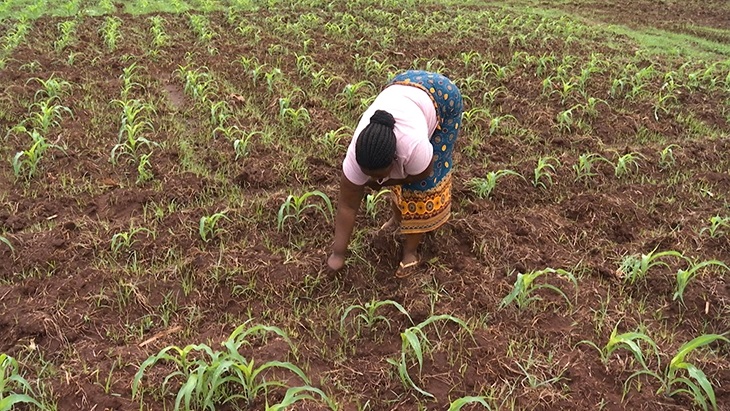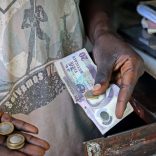Central bank data show Mozambique’s international reserves surpass US$4 billion in August
Mozambique Economic Update: Getting Agricultural Support Right – World Bank

File photo: MADER
After multiple consecutive shocks, including the COVID-19 pandemic, which led to the first recession in almost three decades, Mozambique economy has started to recover but under considerable uncertainty.
The World Bank launches today the 8th edition of its Economic Update on Mozambique. The report— organized in two parts—first assesses the country’s economic recovery from the COVID-19 crisis and presents its economic outlook. The second part discusses the potential offered by agriculture to promote a sustainable and more inclusive recovery, and outlines reform options for realigning agricultural support policies and programs towards competitiveness, climate resilience and food security objectives.
The report notes that Gross Domestic Product (GDP) growth reached 2.2 percent in 2021, as favourable weather conditions supported agricultural growth, and the gradual lifting of containment measures boosted private consumption, fostering services recovery. However, the recovery has not been sufficiently broad-based. Despite the gradual uptick in domestic and global demand, growth in the extractives and manufacturing sectors remained subdued. Several constraints dampened the overall economic performance, notably the suspension of multi-billion LNG projects due to escalation of insurgency, tighter monetary policy, and new waves of COVID-19 infections.
Despite continued significant fiscal pressures, revenue collection has held up and expenses have been kept in check. The overall fiscal deficit is estimated to have declined from 5.7 percent of GDP in 2020 to 4.5 percent in 2021. However, domestic public debt has continued to rise as the authorities resorted to domestic market to fulfil financing needs, given Mozambique’s limited access to external financing. The domestic debt stock reached 22 percent of GDP in 2021, up from 16 percent in 2019.
Economic growth is expected to accelerate in the medium term, averaging 5.7 percent between 2022 and 2024, as demand recovers further, and the economy benefits from the start of LNG production at the ongoing offshore Coral project in 2022 and the expected resumption of larger LNG projects. Recovery in global demand and commodity prices will continue to support export growth, and FDI inflows (mainly linked to LNG) will sustain investments. Additionally, the three-year ECF arrangement agreed with the IMF for 2022-2025 and budget support from other development partners, will further help to strengthen economic recovery, while addressing debt and financing constraints. However, downside risks are substantial and could substantially lower growth. These include rising import prices owing to the Ukraine conflict, further COVID-19 infection waves, and insurgency in the north.
With the right support, agriculture can be a sustainable source of growth, poverty reduction and food security
Agriculture remains the country’s main economic activity and its agroecological diversity could be further harnessed to achieving food security. Available evidence shows that agricultural growth would decrease poverty and inequality over three times faster than growth in any of the other sectors. Despite its potential, agricultural productivity remains low by regional standards, with Mozambique having one of the lowest cereal yields per hectare.
The Economic Update suggests policy options that could help realign agricultural support policies and programs towards competitiveness, climate resilience, and food security objectives. These include:
- Shifting agricultural support to public goods and services such as rural infrastructure, animal and plant health services, and agricultural research that can deliver higher economic returns –– This shift will require mobilizing financial resources to ensure that it is as neutral as possible to the state budget, while also addressing some of the current structural issues with agriculture public spending (e.g., most sector expenditures are on salaries rather than investments).
- Shifting towards a more competitive agricultural policy support — Mozambican farmers should produce based on market signals and should be moving towards full participation in regional free trade agreements (SADC and the African Continental Free Trade Area—AfCFTA). The gradual reduction of border measures could be accompanied by direct, decoupled, support to farmers who produce protected commodities.
- Reducing implicit taxation of food and increase support to food-insecure households — Mozambican food consumers are funding the bulk of support to the agricultural sector by paying an implicit tax due to border protection measures (MPS). This hits the poorest households hardest. Gradually reducing the MPS would consequently increase the welfare of the poorest.
- Shifting support towards smart subsidies — Producer support could be reformed to allow farmers to choose what to produce; support crop production intensification as opposed to area expansion; and expand access to safe and nutritious food. Not least of all, integrate climate-smart, nutrition sensitive agricultural technologies and practices into input and technology support incentives to promote productivity growth, build resilience and achieve environmental and nutrition objectives.












Leave a Reply
Be the First to Comment!
You must be logged in to post a comment.
You must be logged in to post a comment.